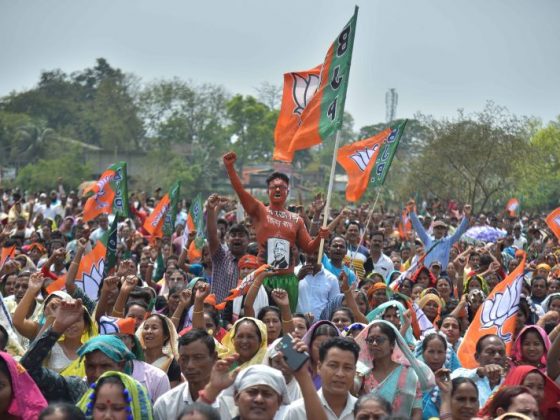 Throughout the United States, more cities have begun offering free cash programs as part of an effort to expand the anti-poverty safety net. These programs typically involve providing a set amount of money to low-income individuals or families each month, no strings attached. This method is a form of universal basic income (UBI), a concept that has gained traction in recent years.
Proponents of these types of programs argue that they can significantly reduce poverty levels and provide people with a much-needed financial buffer. Critics, however, worry about the cost and potential disincentives for recipients to work. Yet, pilot programs conducted in several cities to test this method have reported positive outcomes.
Cities like Stockton and Oakland in California have pioneered these initiatives with promising results. For instance, Stockton’s two-year pilot program, SEED, provided $500 per month to 125 residents living at or below the median income line. Early results from the pilot programs show that recipients mostly used the funds for basic needs like food and utilities. Additionally, studies found that unconditional cash transfers did not discourage work.
Cities expanding these programs hope to address wealth gaps, especially among minority communities. Such programs can be critical in helping families weather financial setbacks and breaking the cycle of poverty. Still, the long-term efficacy and sustainability of such programs need more data, research, and time to fully understand.
Throughout the United States, more cities have begun offering free cash programs as part of an effort to expand the anti-poverty safety net. These programs typically involve providing a set amount of money to low-income individuals or families each month, no strings attached. This method is a form of universal basic income (UBI), a concept that has gained traction in recent years.
Proponents of these types of programs argue that they can significantly reduce poverty levels and provide people with a much-needed financial buffer. Critics, however, worry about the cost and potential disincentives for recipients to work. Yet, pilot programs conducted in several cities to test this method have reported positive outcomes.
Cities like Stockton and Oakland in California have pioneered these initiatives with promising results. For instance, Stockton’s two-year pilot program, SEED, provided $500 per month to 125 residents living at or below the median income line. Early results from the pilot programs show that recipients mostly used the funds for basic needs like food and utilities. Additionally, studies found that unconditional cash transfers did not discourage work.
Cities expanding these programs hope to address wealth gaps, especially among minority communities. Such programs can be critical in helping families weather financial setbacks and breaking the cycle of poverty. Still, the long-term efficacy and sustainability of such programs need more data, research, and time to fully understand.
Free cash programs spread as more cities expand the anti-poverty safety net

 Throughout the United States, more cities have begun offering free cash programs as part of an effort to expand the anti-poverty safety net. These programs typically involve providing a set amount of money to low-income individuals or families each month, no strings attached. This method is a form of universal basic income (UBI), a concept that has gained traction in recent years.
Proponents of these types of programs argue that they can significantly reduce poverty levels and provide people with a much-needed financial buffer. Critics, however, worry about the cost and potential disincentives for recipients to work. Yet, pilot programs conducted in several cities to test this method have reported positive outcomes.
Cities like Stockton and Oakland in California have pioneered these initiatives with promising results. For instance, Stockton’s two-year pilot program, SEED, provided $500 per month to 125 residents living at or below the median income line. Early results from the pilot programs show that recipients mostly used the funds for basic needs like food and utilities. Additionally, studies found that unconditional cash transfers did not discourage work.
Cities expanding these programs hope to address wealth gaps, especially among minority communities. Such programs can be critical in helping families weather financial setbacks and breaking the cycle of poverty. Still, the long-term efficacy and sustainability of such programs need more data, research, and time to fully understand.
Throughout the United States, more cities have begun offering free cash programs as part of an effort to expand the anti-poverty safety net. These programs typically involve providing a set amount of money to low-income individuals or families each month, no strings attached. This method is a form of universal basic income (UBI), a concept that has gained traction in recent years.
Proponents of these types of programs argue that they can significantly reduce poverty levels and provide people with a much-needed financial buffer. Critics, however, worry about the cost and potential disincentives for recipients to work. Yet, pilot programs conducted in several cities to test this method have reported positive outcomes.
Cities like Stockton and Oakland in California have pioneered these initiatives with promising results. For instance, Stockton’s two-year pilot program, SEED, provided $500 per month to 125 residents living at or below the median income line. Early results from the pilot programs show that recipients mostly used the funds for basic needs like food and utilities. Additionally, studies found that unconditional cash transfers did not discourage work.
Cities expanding these programs hope to address wealth gaps, especially among minority communities. Such programs can be critical in helping families weather financial setbacks and breaking the cycle of poverty. Still, the long-term efficacy and sustainability of such programs need more data, research, and time to fully understand.

